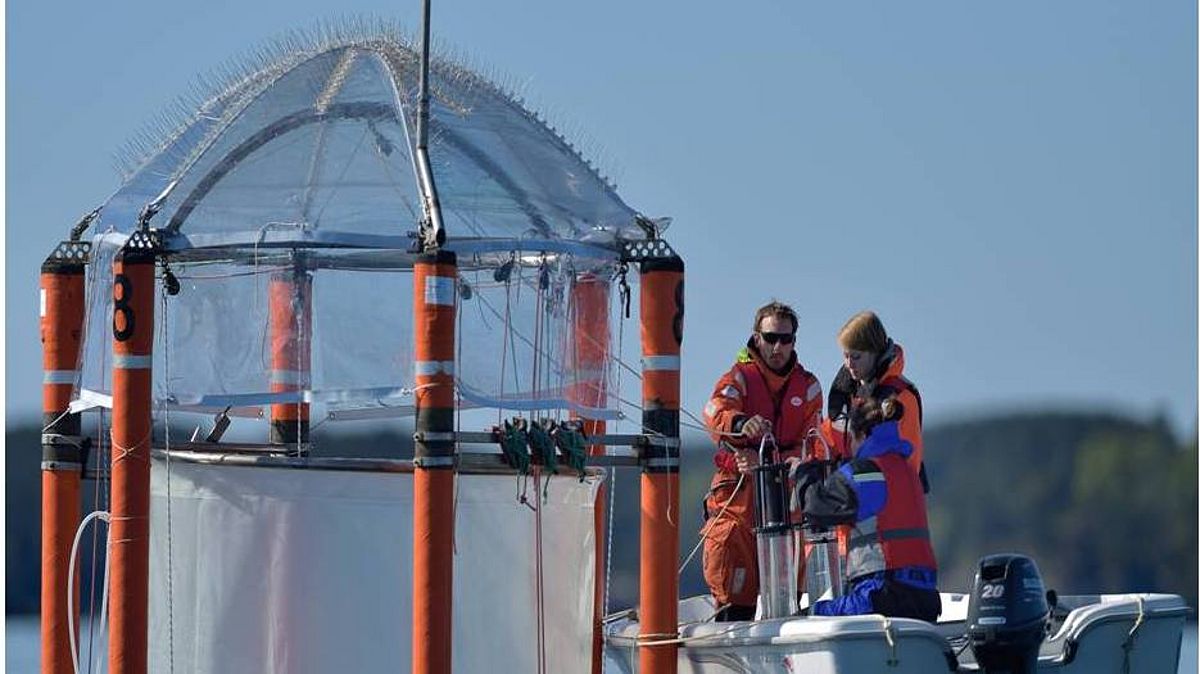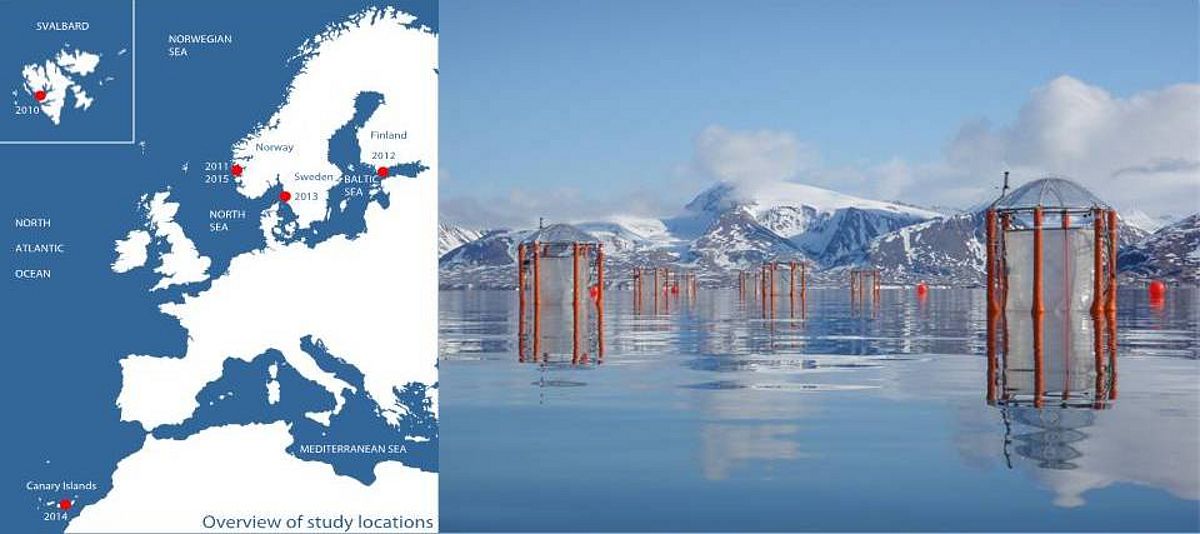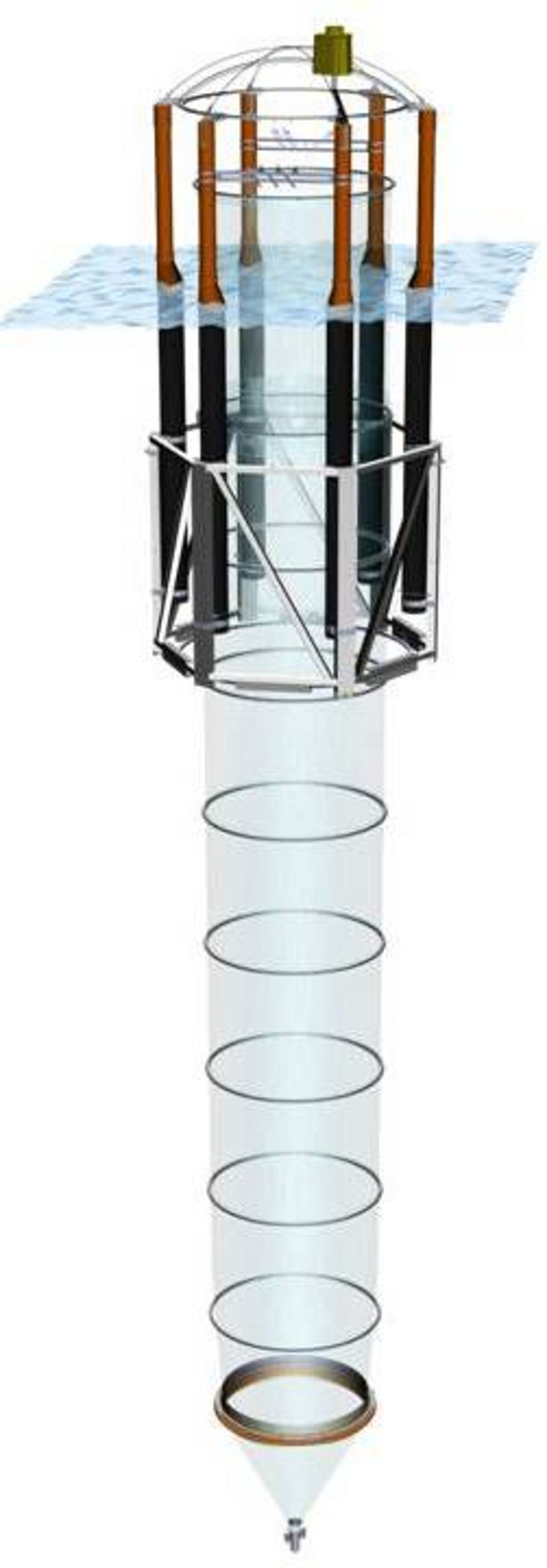KOSMOS – Kiel Off-Shore Mesocosms for Oceanographic Studies
The Kiel Off-Shore Mesocosms for Ocean Simulations (KOSMOS) are a seagoing mobile platform for mesocosm experiments which can be deployed from any mid-sized research vessel. It presently comprises 9 free-floating units, each consisting of a floatation frame and a flexible bag 2 m in diameter and 20 m long (Fig. 1). After deployment, the bag unfolds by weights pulling down its lower end to depth, thereby enclosing an undisturbed water column 55 m3 in volume. The bag is then closed at the bottom by a full-diameter sediment trap. Regular cleaning of the mesocosm bags prevents wall growth and thus enables long-term experiments covering the seasonal plankton succession and allowing for studies on evolutionary adaptation. The enclosed water encompasses the entire plankton community up to the level of fish larvae and small pelagic fish. Sampling of sedimented matter in combination with frequent measurements of dissolved and suspended matter and air-sea gas exchange can be used for budget calculations of major elements (C, N, P, Si). Potential experimental perturbations include the addition of inorganic nutrients or organic compounds, CO2 enrichment, manipulation of mixed layer depth, simulation of deep-water upwelling, species exclusion and addition of invasive species.
The KOSMOS facility was successfully employed in long-term experiments in different climate zones, ranging from the high Arctic to temperate waters in the Baltic and North Sea to oligotrophic waters off Gran Canaria and Hawai’I (Fig. 2).
These studies, which focussed on the effects of ocean acidification plankton dynamics and biogeochemical cycling, involved researchers from a wide range of scientific fields, including marine and atmospheric chemistry, molecular and evolutionary biology, marine ecology and biological oceanography, aquaculture, fish biology, and biogeochemistry. Results of the KOSMOS experiments have been used in various ecosystem and biogeochemical modelling activities.
Services currently offered by the infrastructure: External users will have the unique opportunity to participate in multidisciplinary mesocosm experiments carried out in the open sea under close-to-natural conditions. Users will
- be able to carry out their specific measurements during coordinated mesocosm experiments
- have unrestricted access to the large data set generated by all participants of the experiment
- contribute to obtaining an integrated view of the responses of a complex biological system, the marine pelagic ecosystem
- be part of a high-profile, high-visibility research project and be able to interact with leading scientists from a wide range of disciplines

Future KOSMOS campaigns: Planned and funded campaigns in the coming five years include studies on the effects of ocean deoxygenation in oxygen minimum zones of eastern boundary upwelling systems, effects of ocean acidification on oligotrophic pelagic systems, and the potential of artificial upwelling in raising productivity and fishery harvest in low-productive ‘ocean deserts’.
Contact: Prof. Ulf Riebesell




